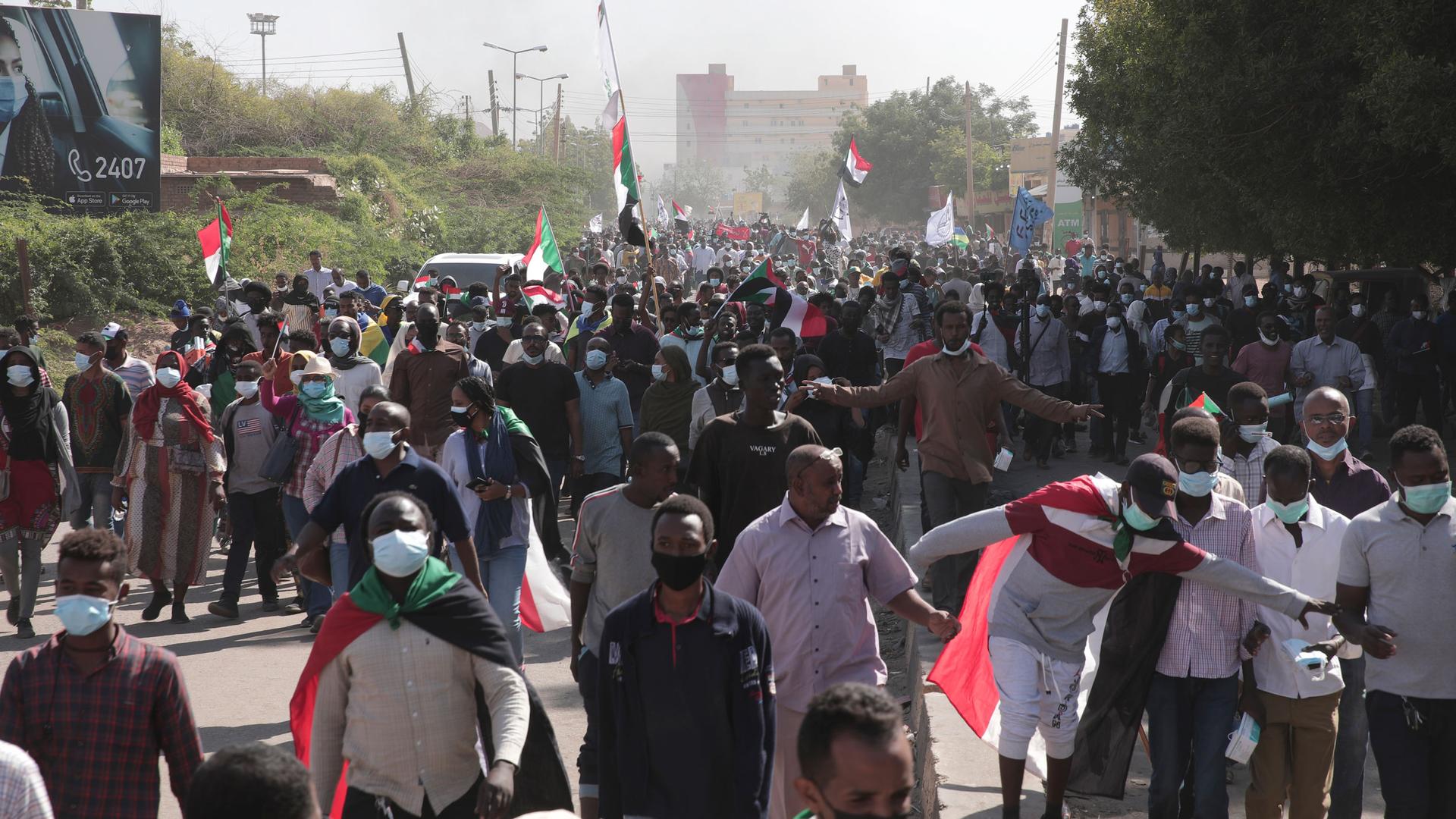This week, hundreds of thousands of protesters across Sudan marched once again toward the presidential palace in Khartoum. The palace symbolizes the oppressive regime of former dictator Omar al-Bashir, who was ousted three years ago following massive popular protests.
For two months now, a broad cross section of Sudanese society has been demonstrating against the military after they staged a coup on Oct. 25. The military removed civilian Prime Minister Abdalla Hamdok and arrested the very same civilian leaders intended to share power with the military as the country transitions to democratic elections.
Related: Anti-coup protesters in Sudan say they won’t back down
While a deal with Gen. Abdel Fattah al-Burhan in November returned Hamdok to his position, it has yet to convince many Sudanese that the military-civilian, power-sharing agreement is a tenable path to democracy.
Related: Sudan’s civilian prime minister is reinstated weeks after military takeover
In fact, ongoing violence by security forces has hardened many Sudanese against them.
According to the Central Committee of Sudanese Doctors, more than 45 people, including children, have been killed by security forces since the military takeover.
One of them was Sit al-Nafour Ahmed, a 25-year-old nurse from Bahri who was shot in the head during a demonstration on Nov. 17.
“I will never forgive the people who [killed my daughter.]”
“I will never forgive the people who did this,” said Zenaib al-Saddique Bakkar, Ahmed’s mother.
She and her other daughters remember Ahmed as a kind and generous person who would tend to the wounded at protests and give clothes to the poor.
Crying, Bakkar said she wishes that she could have died instead of her daughter. Now, the most she can hope for is justice.
But Sudan’s military has denied killing protesters, despite video evidence showing otherwise.
Burhan, who once again heads the Sovereign Council, told media that an investigation into the deaths is underway.
“More than 200 people have been killed since the December revolution in 2019.”
“More than 200 people have been killed since the December revolution in 2019,” said Mudathir Mohamed Taha, a lawyer with an organization supporting the families of martyrs — a common term used to honor those killed in Sudan’s pursuit for democracy.
Taha was inspired to do this work after his older brother was killed after being shot at during a protest.
But justice, he said, has been elusive. Sudan’s legal system is complex and long. More importantly, members of Sudan’s security forces still have broad immunity to criminal prosecution.
Related: ‘Millions March’ protests planned across Sudan as military doubles down on power grab
The recent military coup has also complicated the situation because the Sovereign Council appointed a new chief justice and attorney-general without input from the Freedom for Forces and Change coalition, as mandated by the constitution.
Regardless, neither the uncertain road to justice nor the deadly cost of demonstrating against those in power has stopped Sudanese from protesting for a democratic future.
“I was really touched by the death of Sit al-Nafour and all the martyrs.”
“I was really touched by the death of Sit al-Nafour and all the martyrs,” said Nashwa Abdulaziz, a young student at a demonstration in Bahri this month.
She was wearing a picture of Ahmed’s smiling face around her neck.
“All of the people who have been killed motivate us to keep going with this revolution,” Abdulaziz said.
Correction: The audio broadcast of this story erroneously said that Sudan’s military leaders removed the chief justice and attorney-general following the coup in October. In fact, the new Sovereign Council, headed by Gen. Abdel Fattah al-Burhan, appointed a new chief justice and attorney-general following the takeover. We regret the error.
Our coverage reaches millions each week, but only a small fraction of listeners contribute to sustain our program. We still need 224 more people to donate $100 or $10/monthly to unlock our $67,000 match. Will you help us get there today?
